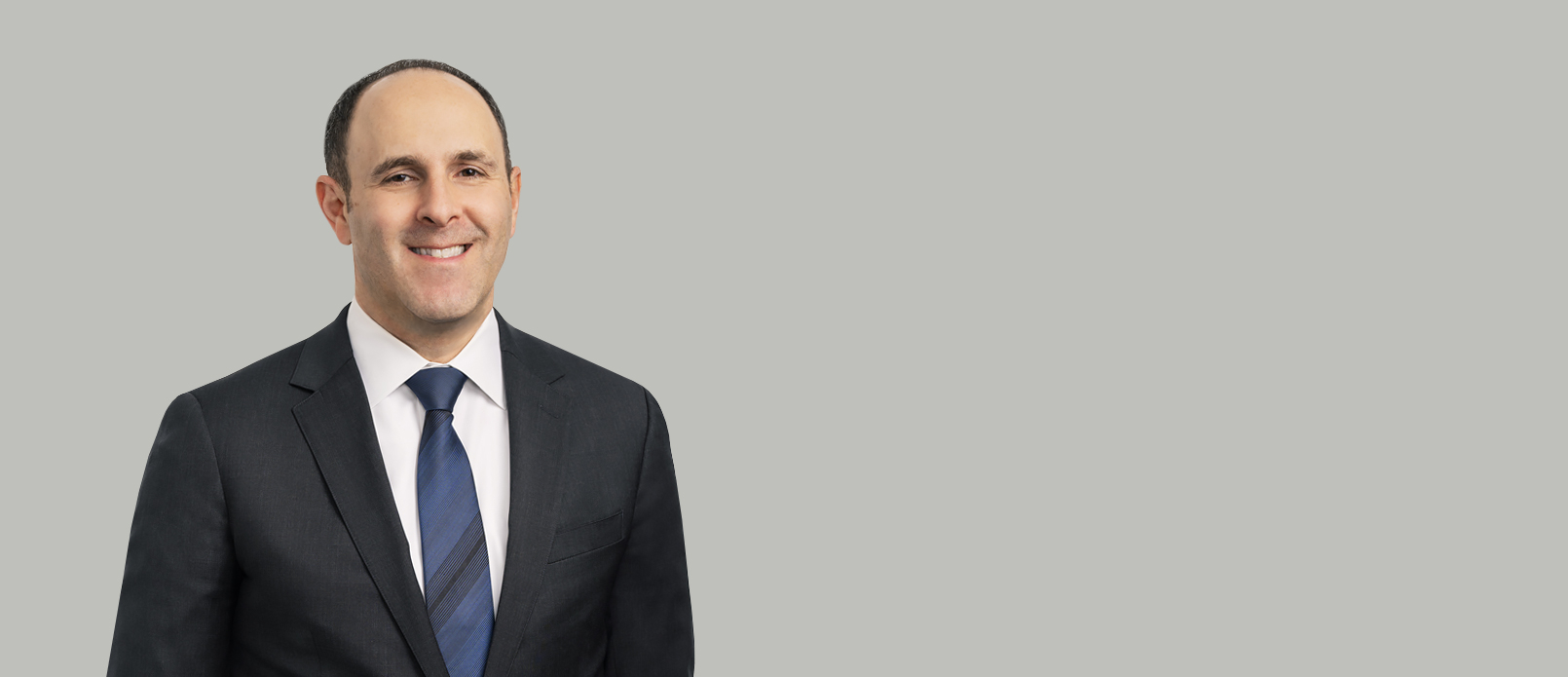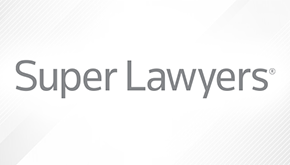Maybe We Can: Legal Challenges to the Proposed Obama Presidential Center in Jackson Park Are Running Out of Time
In 2016, the Barack Obama Foundation ("Foundation") announced its plan to build the Obama Presidential Center ("Obama Center") in Chicago's historic Jackson Park. But as the Foundation has learned first-hand, it's not easy building a museum in Chicago. Mr. Obama should have asked George Lucas, the creator of "Star Wars," who tried to build his Lucas Museum of Narrative Art on a rarely used parking lot just south of Soldier Field. Despite that area's designation as the "Museum Campus," Friends of the Parks, a local organization with the goal of ensuring "an equitable park system," stymied Mr. Lucas's plans by filing a lawsuit asserting that under the "public trust doctrine," the City of Chicago ("City") and the Chicago Park District ("Park District") lacked authority to convey any interest in the parking lot to the Lucas Museum. Ultimately, Mr. Lucas abandoned Chicago and decided to build his museum in Los Angeles.
Certainly where George Lucas failed, Barack Obama could succeed. After all, while Mr. Lucas's connections to Chicago were tenuous, Mr. Obama's are undeniable. Not to mention the vast difference in the magnitude of the two men's respective contributions and accomplishments. Yet, President Obama and the Foundation are facing similar resistance, albeit from a different pro-park organization. Since the Foundation announced Jackson Park as the location for the Obama Center, it has run into one roadblock after another. This article focuses on two lawsuits filed by Protect Our Parks ("POP"), an organization similar to Friends of the Park that borrowed from the latter's playbook by relying on the public trust doctrine, among other legal theories, in its ongoing attempt to stop the Foundation from building the Obama Center in Jackson Park. Before we discuss the lawsuits, here's some background information on Jackson Park, the proposed Obama Center and POP.
Jackson Park
Jackson Park, in Chicago's Woodlawn community, was dedicated by land grant from the Illinois legislature in 1869. Frederick Law Olmstead and Calvert Vaux, famous for designing New York's Central Park, were hired to design the park. Jackson Park was the site of the World's Columbian Exposition, which opened in 1893. The Museum of Science and Industry, located at the northernmost end of the park, is the only remaining building from the Exposition.
Today, the park is over 55o acres, extending from 56th Street to 67th Street, and bordered by Stony Island Avenue to the west and Lake Michigan to the east. In addition to the Museum of Science and Industry, the park features a gymnasium, a fitness center, the Wooded Island, multiple lagoons, vegetable and flower gardens, three harbors, 63rd Street Beach, basketball courts, tennis courts, a golf course and driving range and an artificial turf field, among other amenities.
The Obama Presidential Center
After the Foundation selected Jackson Park to house the Obama Center, the City acquired land from the Park District, enacted an ordinance required to approve construction, and entered into a use agreement with the Obama Foundation to govern the terms of construction, ownership and operation. Protect Our Parks, Inc. v. Chicago Park District, 971 F.3d 722, 728 (7th Cir. 2020). Pre-construction work, such as relocating utility lines, began in April 2021. Physical construction could start as early as August 2021.2 The Obama Foundation is contractually obligated to bear l00% of the costs to construct and maintain the grounds and structures, but ownership will be turned over to the City once construction is complete. Id. The Foundation's financial obligation excludes preconstruction and other work, which are being funded by the City and the State of Illinois. An economic impact study concluded the site will bring 700,000 visitors to Jackson Park each year. Id.
The Obama Center will occupy 19.3 acres, which is less than 5% of Jackson Park's 55o acres. Supposedly, more than 18 of those acres will remain open green space, free and accessible to the public. Id. The Center will include a presidential museum, a branch of the Chicago Public Library, a program, activity, and athletic center, open green space, new walking and biking trails, a nature trail, a children's play area, a fruit and vegetable garden and a teaching kitchen. Id.
The landscaping plan for the Obama Center supposedly "restores and embraces the rich history of the park, giving new life to Frederick Law Olmsted's vision of a cohesive, walkable, and iconic Jackson Park by reunifying parkland, planting new trees, increasing biodiversity, and providing newly expanded habitat for birds and wildlife." Id.
Protect Our Parks, Inc.3
POP was formed in 2007. It is "a volunteer non-profit organization dedicated to keeping public park land open to the public." Currently, POP has its own legal team, which includes a New York University law professor and a Chicago-based commercial litigator. These two lawyers joined POP in 2019, apparently, to assist with the organization's lawsuits objecting to the Obama Center. Both lawyers have appeared as plaintiffs' counsel in Protect Our Parks II.
Protect Our Parks I
Protect Our Parks I has been resolved in favor of the defendants and is no longer pending. It was filed in May 2018 by POP and three Chicago residents. The defendants were the Park District and the City. The Seventh Circuit summarized Protect Our Parks I as follows:
This case is about the plaintiffs' quest to halt construction of the Obama Presidential Center in Chicago's Jackson Park. First developed as the site for the Chicago World's Fair in 1893, Jackson Park has a storied place in Chicago history, and as public land, it must remain dedicated to a public purpose. The City made the judgment that hosting a center devoted to the achievements of America's first African American President, who has a longstanding connection to Chicago, fit that bill. Vehemently disagreeing, the plaintiffs sued the City of Chicago and the Chicago Park District to stop the project. They brought a host of federal and state claims, all asserting variants of the theory that the Obama Presidential Center does not serve the public interest but rather the private interest of its sponsor, the Barack Obama Foundation.
Protect Our Parks I, 971 F.3d at 727-28.
More specifically, the plaintiffs asserted four claims; two state law claims and two federal claims. Id. The first state law claim was that the defendants violated the Illinois public trust doctrine, which limits the government's ability to transfer control or ownership of public lands to private parties. Id. Under this doctrine, once land has been dedicated to a public purpose, the government Thold[s] the properties in trust for the uses and purposes specified and for the benefit of the public.'" Id. (quoting Paepcke v. Pub. Bldg. Comm'n of Chi., 46 Il1.2d 330, 336 (Ill. 1970)). While "dedication to a public purpose isn't irrevocable . . . the doctrine requires courts to ensure that the legislature has made a sufficient manifestation of legislative intent to permit the diversion and reallocation to a more restrictive, less public use." Id. The second state law claim was that the defendants conduct — entering into the use agreement with the Foundation -- was ultra vires, or "beyond their legal authority." Id. The plaintiffs argued that the use agreement violated Illinois law because, among other things, it delegated decision-making authority to the Foundation, granted the Foundation an illegal lease and exchanged the property for less than legal value. Id.
The plaintiffs, federal claims arose under the Takings Clause and Due Process Clause of the Fifth and Fourteenth Amendment, respectively. Id. at 729. The plaintiffs alleged that by altering the use of Jackson Park and giving control to the Foundation, the defendants "took" the plaintiffs' public property for private use, and deprived them of their property via a process that lacked procedural safeguards. The district court granted summary judgment for the defendants on all four counts. The Seventh Circuit affirmed.
First, the court held that the plaintiffs lacked Article III standing to assert the state law claims because they failed to show an injury to their "separate concrete interests." Id. at 731 (quoting Lujan v. Defs. of Wildlife, 504 U.S. 555, 572 (1992)). Instead, the plaintiffs merely alleged that the City and Park District violated the law. Id. The court explained:
All residents of Chicago — indeed, advocates for good government everywhere — desire that the government follow the law. But recognizing standing based on such an "undifferentiated" injury is fundamentally "inconsistent" with the exercise of judicial power.
Id. at 731 -32 (quoting Lujan, 504 U.S. at 575). In an attempt to get around their lack of injury, the plaintiffs argued they had standing because "Jackson Park will suffer an injury in fact." Id. at 732. The Seventh Circuit rejected this position, stating: "The plaintiffs can't repackage an injury to the park as an injury to themselves." Id. Nor could plaintiffs sue "on behalf of the park" because, among other reasons, "Jackson Park has no rights of its own to assert." Id.
Next, the court addressed the issue of municipal taxpayer standing. In doing so, the Seventh Circuit recognized the longstanding rule that standing to sue the federal government cannot be based merely on a plaintiffs status as a federal taxpayer. Id. at 733 (citing Frothingham v. Mellon, 262 U.S. 447, 487-88 (1923)). However, municipal taxpayer standing remains available -- at least, under current Supreme Court precedent -- to a plaintiff seeking to sue a municipality. Id. Municipal taxpayer standing has two threshold requirements: (1) the plaintiff must be a taxpayer of the municipality she wishes to sue; and (2) the plaintiff must establish that the municipality spent tax revenues on the allegedly illegal action. Id. at 734 (citing Freedom from Religion Found., Inc. v. Zielke, 845 F.2d 1463, 1470 (7th Cir. 1988)). The court found that plaintiffs could not meet the second requirement.
As an initial matter, the City's agreement with the Foundation requires the Foundation to pay to construct, operate and maintain the Obama Center. Id. at 735. And, while the City is set to spend millions of dollars "to prepare the Jackson Park site for construction," the court found that plaintiff's did not claim that these preparatory projects violated the public trust doctrine. Id. Further, the plaintiffs could not establish that taxpayer money was going to be used for the preparations because, according to the City of Chicago, 2020 Budget Overview, nearly one third of the City's annual budget comes from "nontax sources" such as licensing fees, parking tickets and federal grants. Id. ay 735-36. Thus, the plaintiffs could not identify "an action on the city's part that is allegedly illegal and . . . that city tax dollars will be spent on that illegal activity." Id.
Second, the court turned to the plaintiffs federal claims: that the defendants took private property without due process in violation of the Fifth and Fourteenth Amendments. To succeed on these claims, the plaintiffs had to establish that they had some private property interest in Jackson Park. Following Illinois Supreme Court precedent, the court held that the plaintiffs had no protected interest in public parkland. Id. at 737.4 The court found other reasons to affirm the lower court's summary judgment award for defendants. For example, under the Fifth Amendment, even if the City's agreement with the Foundation was "a transfer to a private party," such a transfer can be constitutional if it is done for a "public purpose." Id. at 737 (quoting Kelo v. City of New London, 545 U.S. 469, 483-84 (2005)). The court noted that it would be hard to "second-guess the City's determination that building the Center — with its museum, public library branch, auditorium, athletic center, gardens, and more — is a use with public benefits." Id. (internal quotations omitted).
In sum, the court affirmed the grant of summary judgment for defendants on the federal claims, and vacated the grant of summary judgment on the state law claims, holding that the plaintiffs lacked standing to bring those claims in federal court. As such, the state law claims were dismissed for lack of jurisdiction.
Following the Seventh Circuit's opinion, the plaintiffs sought a rehearing en banc, which was denied. The plaintiffs also filed a Petition for Writ of Certiorari with the Supreme Court, but the Court denied the Petition on April 26, 2021.
Protect Our Parks II
Perhaps anticipating the Supreme Court's decision, less than two weeks before the Court denied the Petition, on April 14, 2021, POP filed a second lawsuit to stop the Obama Center from breaking ground. Protect Our Parks II is brought by POP, the Nichols Park Advisory Council ("NPAC") and five new individuals.5 The list of defendants was also revised. In addition to the City and the Park District, the defendants include the Obama Foundation and the heads of multiple federal agencies, including the Department of Transportation, the Federal Highway Administration, the Department of the Interior, the National Park Service, the Army and the Army Corps of Engineers.
In Protect Our Parks II, the plaintiffs seek "declaratory and injunctive relief" preventing construction of the Obama Center. Generally, the plaintiffs' legal theory is that each federal agency defendant was statutorily required to perform a review of the proposed project, which included a review of alternatives to determine how to best address the adverse effects and impacts created by the Obama Center and to seek ways to avoid, minimize and mitigate those impacts.6 The plaintiffs allege that the agencies' conclusions during their respective review processes were "faulty" and contrary "to both the letter and spirit of these statutes." (Compl. ¶ 3.) Boiled down to one sentence, the Complaint alleges that the agencies failed to follow the law because they failed to conclude (or even consider) that locating the Obama Center somewhere other than Jackson Park was a simple, expedient, viable and obvious less-harmful alternative. The plaintiffs blame "political forces" exerted by the City and Park District for the federal agencies' respective failures to comply with the law. The plaintiffs also attempt to resurrect their state law claims from Protect Our Parks I against the City and the Park District.
So far, no defendant has responded to the complaint. The parties are busy fighting over whether Protect Our Parks II will be heard by Judge Blakey, the district court judge who decided Protect Our Parks I and ruled in favor of the defendants. It looks like the defendants are going to win that battle. It's interesting that the plaintiffs have not filed a motion for preliminary injunction to stop construction. Maybe such a motion is coming soon. It's also interesting that the plaintiffs did not re-file their state law claims in state court following the Seventh Circuit's decision in Protect Our Parks I. Although they did not have Article III standing, the plaintiffs may have been able to sustain their public trust and ultra vires claims in state court. Instead, they chose to restate those claims — with some revisions -- to Protect Our Parks II. That decision may have led to Judge Blakey deciding that he should hear Protect Our Parks II. He specifically cited those repeated claims as one of the reasons he should hear the second case.
Conclusion
In all events, we'll have to wait to see how the Protect Our Parks II proceeds, and if the Obama Center breaks ground in August. In the meantime, the Lucas Museum of Narrative Art is under construction and scheduled to open in 2023 in Los Angeles. The building is going to sit on a brand new 11-acre park.
1The information in this section is from the Chicago Park District's website, www. chicagoparkdistrict.com/parks-facilities/jackson-park.
'See February 3, 2021 Press Release "Obama Presidential Center Groundbreaking Announced for 2021 as Multi-Year Federal Review Process Concludes" at www.obama.org/updates/opc-groundbreaking-2o21/.
3The information in this section is from Protect Our Parks website, www.protectourparks.org.
4The court reached its conclusion of the federal claims on the merits as opposed to finding that the plaintiffs lacked standing. In doing so, the court held: "Millen the existence of a protected property interest is an element of the claim, deciding whether the interest exists virtually always goes to the merits rather than standing." Id. at 736-37
5NPAC is a not-for-profit that works to ensure that parks on the South Side of Chicago, including Jackson Park, remain open and free, maintain their aesthetic beauty and public recreational access. (Compl. ¶ 13.) The individual plaintiffs are Chicago residents who live and/or work near Jackson Park and who have used and enjoyed Jackson Park for many years. (Id. 111115-19.)
6The statutes relied on by the plaintiffs include the Department of Transportation Act, the National Historic Preservation Act, the Urban Park and Recreation Recovery Act and the National Environmental Policy Act, among others.



































